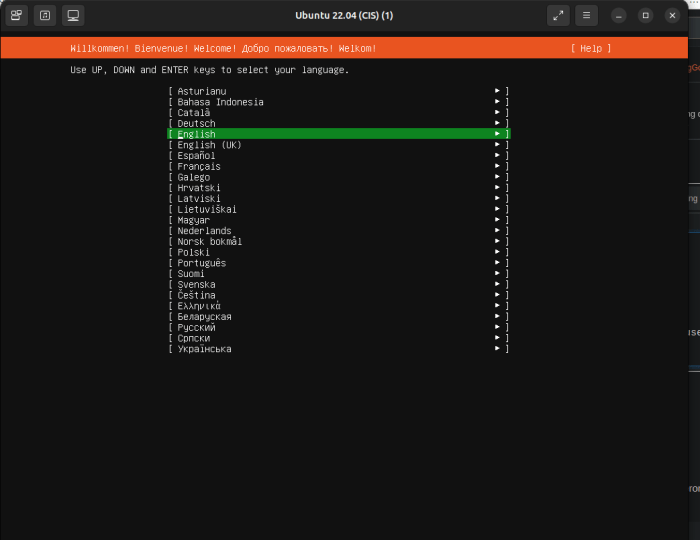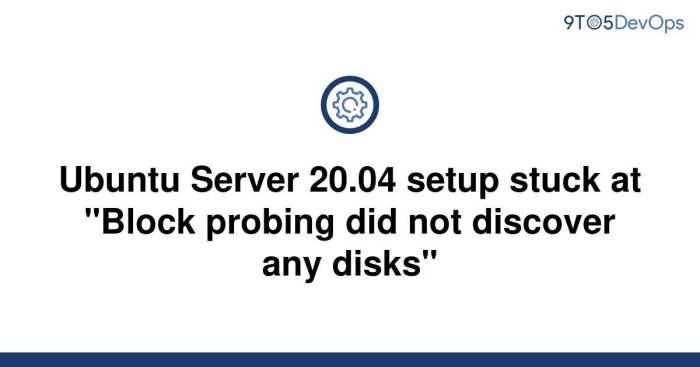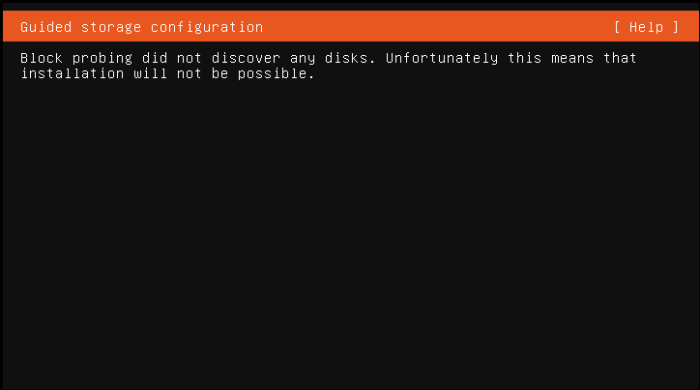Block probing did not discover any disks. unfortunately this means – Block probing, a fundamental technique for discovering disks on a system, occasionally encounters obstacles. This comprehensive guide delves into the intricacies of block probing, examining its potential pitfalls and offering a roadmap for resolving disk discovery issues.
When block probing fails to detect any disks, it signals a need for investigation. This guide provides a systematic approach to troubleshooting, empowering readers to diagnose and rectify the underlying causes.
Block Probing Issues
Block probing is a method used to discover disks on a system. It involves sending I/O requests to various addresses on the system bus to determine if there are any disks present. However, there are several reasons why block probing may not discover any disks.
One reason is that the disks may not be properly connected to the system. This could be due to a loose cable or a faulty connection. Another reason is that the disks may not be powered on. Finally, the disks may not be configured correctly in the system BIOS.
To troubleshoot block probing issues, you should first check the physical connections of the disks. Make sure that the cables are securely connected and that the disks are powered on. If the disks are still not discovered, you should check the system BIOS to make sure that they are configured correctly.
Disk Discovery Methods

There are several alternative methods for discovering disks on a system. One method is to use the system’s Device Manager. The Device Manager is a graphical user interface that allows you to view and manage all of the hardware devices on your system.
To use the Device Manager to discover disks, open the Device Manager and expand the “Disk drives” category. This will display a list of all of the disks that are connected to your system.
Another method for discovering disks is to use the command line. You can use the “fdisk” command to list all of the disks that are connected to your system. To use the fdisk command, open a command prompt and type the following command:
fdisk
-l
This will display a list of all of the disks that are connected to your system.
System Configuration Impact: Block Probing Did Not Discover Any Disks. Unfortunately This Means
The system configuration can affect disk discovery. For example, if the system BIOS is not configured correctly, the disks may not be detected. Additionally, if the system is running a software RAID configuration, the disks may not be visible to the operating system.
To ensure that the system configuration does not affect disk discovery, you should make sure that the system BIOS is configured correctly. You should also make sure that the system is not running a software RAID configuration.
Hardware Considerations

There are several hardware factors that can contribute to block probing issues. One factor is the type of disk controller that is being used. Some disk controllers may not support block probing. Another factor is the type of disks that are being used.
Some disks may not be compatible with block probing.
To resolve hardware-related block probing issues, you should make sure that the disk controller is compatible with block probing. You should also make sure that the disks are compatible with block probing.
Error Messages and Troubleshooting

There are several common error messages that are associated with block probing failures. One error message is “No disks found.” This error message indicates that the block probing process did not find any disks. Another error message is “Disk not found.”
This error message indicates that the block probing process found a disk, but the disk could not be accessed.
To troubleshoot block probing errors, you should first check the physical connections of the disks. Make sure that the cables are securely connected and that the disks are powered on. If the disks are still not discovered, you should check the system BIOS to make sure that they are configured correctly.
Advanced Techniques

There are several advanced techniques that can be used to diagnose and resolve block probing issues. One technique is to use a disk diagnostic tool. A disk diagnostic tool can help you to identify problems with the disks or the disk controller.
Another technique is to use a packet sniffer. A packet sniffer can help you to capture and analyze the I/O requests that are being sent to the disks. This can help you to identify problems with the block probing process.
Question Bank
What are the common reasons for block probing failures?
Block probing failures can stem from various factors, including incorrect system configuration settings, hardware malfunctions, and software bugs.
How can I troubleshoot block probing issues?
Troubleshooting block probing issues involves examining system configuration settings, checking hardware connections, and leveraging diagnostic tools to identify and resolve underlying problems.
What alternative methods can I use to discover disks on a system?
Alternative disk discovery methods include using the fdisk utility, examining the /proc/partitions file, and employing system-specific tools provided by the operating system.